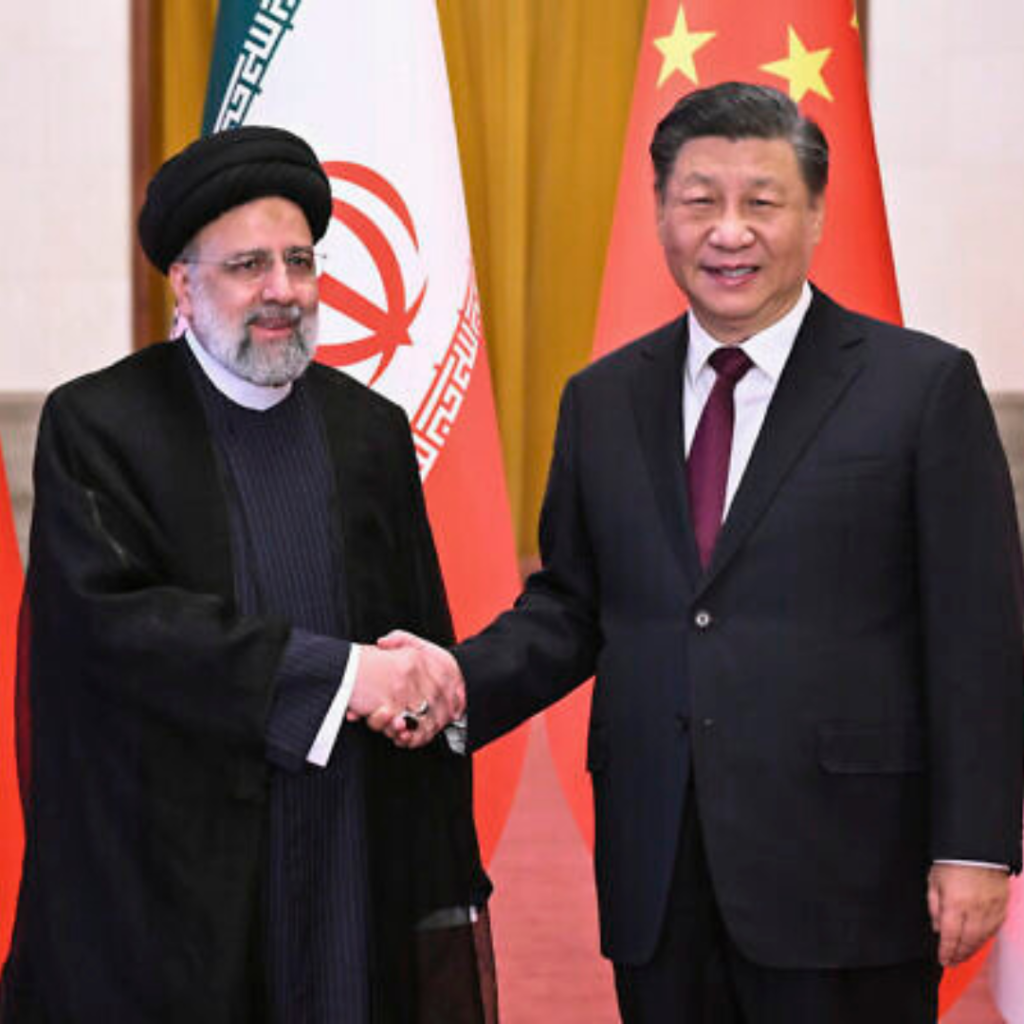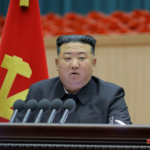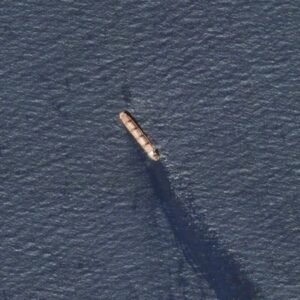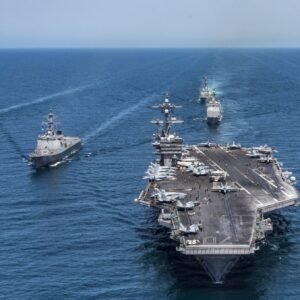In recent discussions between Chinese and Iranian officials held in Beijing and Tehran, Chinese authorities have reportedly called on their Iranian counterparts to take action in curbing the ship attacks in the Red Sea carried out by the Iran-backed Houthis. Failing to do so could potentially jeopardize the business relations between China and Iran, according to information from four Iranian sources and a diplomat familiar with the matter.
The talks, centering on the attacks and the broader trade between the two nations, transpired in multiple recent meetings, as disclosed by the Iranian sources who chose not to disclose specific details regarding the timing or attendees.
An Iranian official familiar with the discussions stated, “Basically, China says: ‘If our interests are harmed in any way, it will impact our business with Tehran. So tell the Houthis to show restraint.'” However, the Chinese officials did not issue specific comments or threats regarding potential repercussions on Beijing’s trading relationship with Iran if Houthi attacks were to damage Chinese interests, as outlined by the four Iranian sources.
Despite China being Iran’s predominant trading partner over the past decade, the trade balance remains skewed. Chinese oil refiners accounted for over 90% of Iran’s crude exports last year, benefiting from significant discounts as U.S. sanctions deterred other buyers. In contrast, Iranian oil represents merely 10% of China’s overall crude imports, and China has alternative suppliers to compensate for potential shortfalls.
The Iranian sources revealed that China emphasized its disappointment if any vessels linked to China were targeted or if the country’s interests were adversely affected. However, China also emphasized its commitment to promoting regional security and stability, asserting that it is a sincere friend to Middle Eastern countries. China’s Ministry of Foreign Affairs stated, “We firmly support Middle Eastern countries in strengthening their strategic independence and uniting and collaborating to resolve regional security issues.”
As of now, Iran’s foreign ministry has not provided immediate comments regarding the discussions on the Red Sea attacks.
Also Read: Ukraine Rejects Russian Allegations of a Downed Military Plane Transporting Prisoners of War.
Axis of Resistance” Dynamics Amid Escalating Red Sea Crisis
Military actions conducted by U.S. and British forces targeting Houthi positions in Yemen have proven ineffective in halting the group’s ongoing attacks on shipping. The Houthis, controlling a significant portion of Yemen, including Sanaa and the Red Sea coast, remain a formidable force despite recent strikes.
Originating in the 1980s as an armed opposition group against Saudi Arabia’s Sunni religious influence in Yemen, the Houthis are intricately tied to Iran. Funded, armed, and trained by Iran, they align themselves with the broader “Axis of Resistance,” characterized by anti-West and anti-Israel sentiments.
In response to the escalating situation, a senior U.S. official revealed that Washington has sought China’s assistance in leveraging its influence over Iran to encourage restraint from the Houthis. This plea was reportedly conveyed during recent discussions between Secretary of State Antony Blinken, National Security Advisor Jake Sullivan, and senior Chinese Communist Party official Liu Jianchao.
Despite the gravity of the situation, a senior Iranian official disclosed that Chinese representatives expressed their concerns in detail during meetings but made no mention of any requests from Washington. On January 14, China’s foreign minister Wang Yi called for an end to attacks on civilian ships in the Red Sea, without explicitly naming the Houthis or referencing Iran, emphasizing the importance of maintaining supply chains and the international trade order.
Victor Gao, chair professor at China’s Soochow University, highlighted China’s disproportionate vulnerability to shipping disruptions as the world’s largest trading nation. Restoring stability in the Red Sea region has become a priority for China. However, Gao, also a former Chinese diplomat and an adviser to Saudi Aramco, indicated that Beijing perceives Israel’s treatment of Palestinians as the underlying cause of the crisis and is hesitant to publicly attribute blame to the Houthis.
In response to inquiries, a U.S. State Department spokesperson declined to comment on discussions between Iran and China concerning the Red Sea crisis.
China Engages with Iran on Red Sea Crisis, Tehran’s Response Uncertain
A diplomatic source revealed that China has been engaging in discussions with Iran regarding the escalating Red Sea crisis, particularly in relation to the Houthi attacks on shipping. The seriousness with which Tehran is considering Beijing’s advice remains unclear.
Two officials from the Yemeni government, which opposes the Houthis, acknowledged that several nations, including China, have been attempting to influence Iran to exert control over the Houthi activities.
Analysts Gregory Brew from Eurasia Group and Ali Vaez from the International Crisis Group emphasized that China possesses potential leverage over Iran due to its substantial oil purchases and Iran’s aspirations for increased Chinese direct investment. However, both analysts noted that China has been hesitant to employ this leverage for various reasons.
Vaez commented, “China prefers to free-ride on the U.S. safeguarding freedom of navigation in the Red Sea by bloodying the Houthis’ nose.” He added that Beijing is cognizant of the fact that Iran does not have absolute control over its allies in Yemen, contributing to China’s reluctance to utilize its leverage in the situation. The intricacies of the geopolitical landscape appear to be influencing China’s approach to the ongoing crisis.
Influence Not Absolute: Iran and China Navigate Complex Dynamics
Houthi spokesman Mohammed Abdulsalam stated on Thursday that Iran had not relayed any message from China regarding a reduction in attacks. Abdulsalam emphasized that Iran’s publicly stated position is to support Yemen, condemning the American-British strikes on the country and commending Yemen’s stance as honorable and responsible.
The outcome of the discussions between Iran and China remains uncertain, with four Iranian sources expressing uncertainty about potential actions Iran might take following the talks.
For Iran, the stakes are high, as China stands as one of the few nations capable of providing the substantial investment Tehran needs to sustain its oil sector and keep its economy afloat. China’s influence was evident in 2023 when it played a facilitating role in an agreement between Iran and regional rival Saudi Arabia to end years of hostilities.
Despite robust economic ties between China and Iran, Beijing’s sway over Tehran’s geopolitical decisions is not absolute, according to one of the Iranian insiders. Some within Iran’s ruling establishment have questioned the value of the partnership with Beijing, citing relatively low non-oil trade and investment volumes since the signing of a 25-year cooperation agreement in 2021.
Iranian state media reports indicate that Chinese firms have invested only $185 million since the agreement, and last year, Iranian non-oil exports to China saw a 68% decline in the first five months of 2023, while imports from China rose by 40%.
In contrast, Chinese companies committed to investing billions in Saudi Arabia after the two countries signed a comprehensive strategic partnership in December 2022.
Two of the Iranian insiders highlighted that while China cannot be disregarded, Tehran has other priorities to consider, and its decisions are influenced by a complex interplay of factors. Regional alliances, ideological considerations, and balancing its role as the leader of the “Axis of Resistance” against potential entanglement in a regional war over Gaza all contribute significantly to Tehran’s decision-making process.
The sources noted that Iran’s approach to the Gaza war and Houthi attacks requires a nuanced strategy, maintaining deniability about the extent of its control over the Houthis while also being able to claim some credit for their anti-Israel actions.













